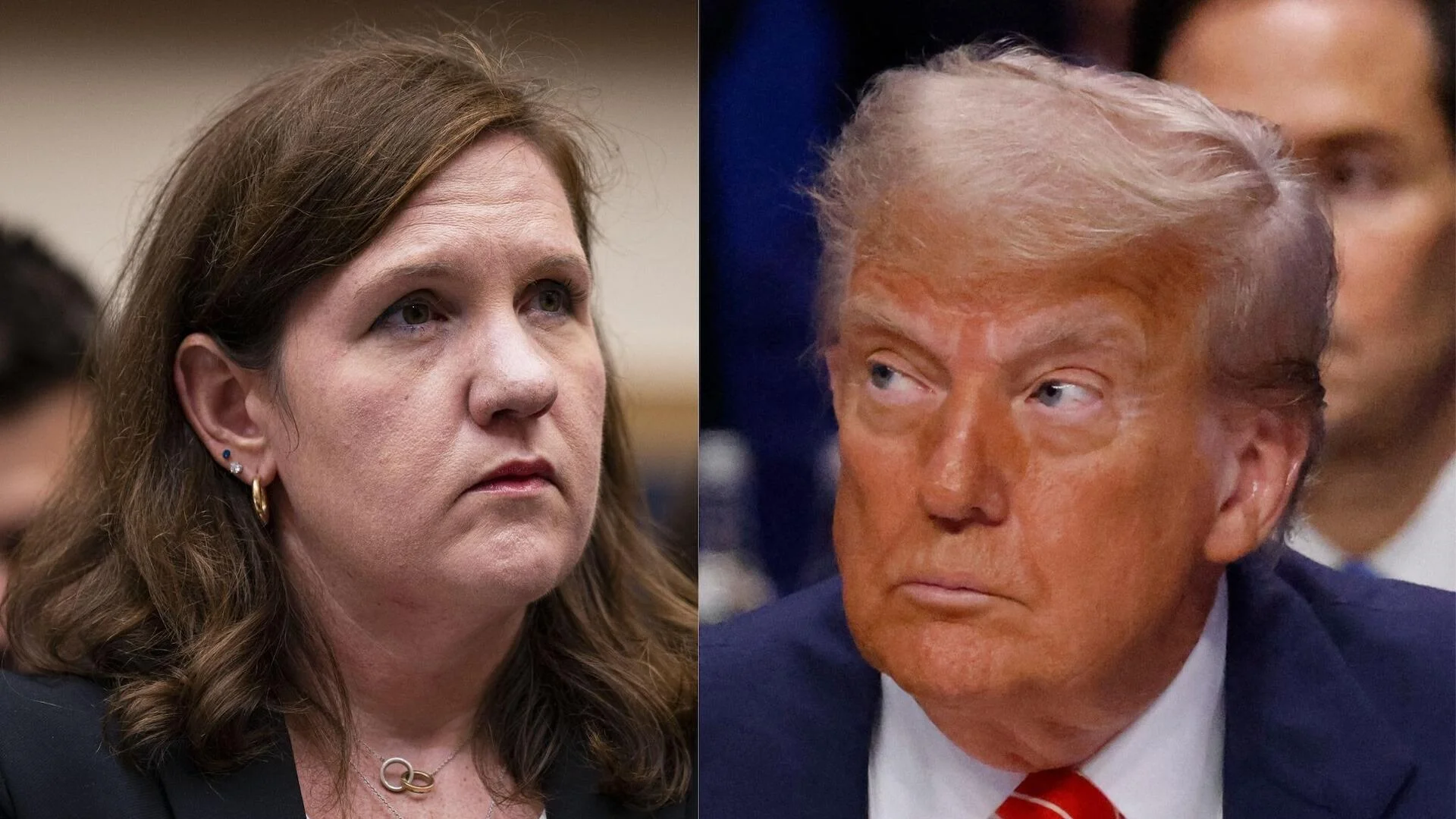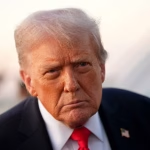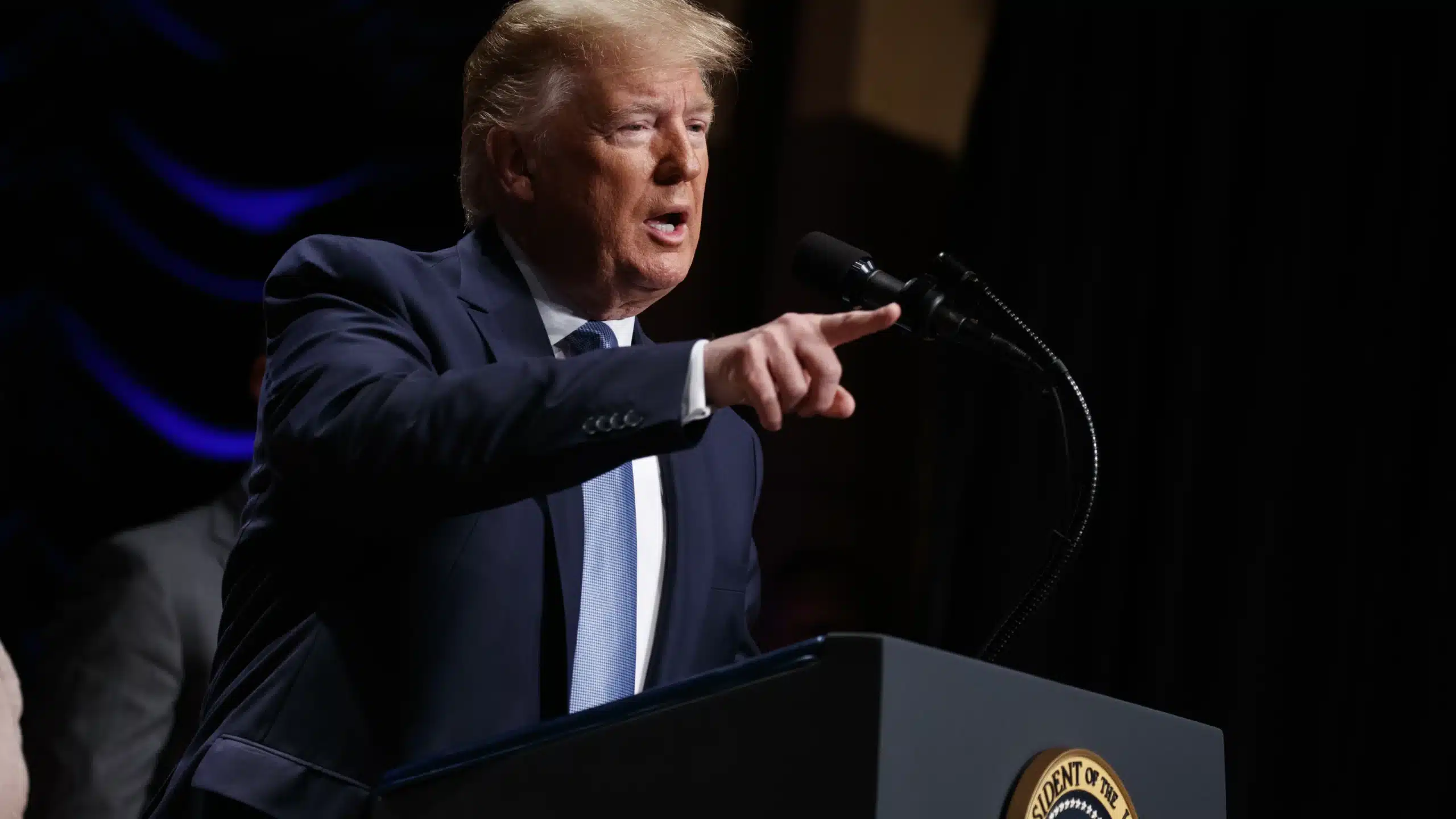In a stunning legal and political development, Chief Justice John Roberts has cleared the way for former President Donald Trump to remove a sitting commissioner of the Federal Trade Commission (FTC). This ruling, which reverberates across Washington and beyond, could reshape the balance of power between the executive branch and independent federal agencies. The decision is not just a matter of one commissioner’s fate—it raises profound questions about the future of regulatory independence, presidential authority, and the very architecture of U.S. governance. As Trump continues to exert influence in American politics, the ruling opens doors to significant policy shifts, especially in areas like antitrust enforcement, consumer protection, and technology regulation.
- The Background of the Case
- Chief Justice Roberts’ Legal Reasoning
- Trump’s Reaction and Political Stakes
- Impact on the Federal Trade Commission
- The Broader Legal and Political Context
- Historical Parallels
- Expert Reactions
- The Role of Congress
- Global Implications
- Looking Ahead: What This Means for Trump and Beyond
- FAQs
- Conclusion
The issue at hand is not confined to one political skirmish. Instead, it reflects a broader battle over the role of independent agencies in American democracy. For decades, the FTC has been seen as a guardian of consumer rights and a watchdog against monopolistic practices. Now, its leadership is being tested in ways that could redefine the limits of independence within the U.S. government. To understand the gravity of this moment, one must look not only at the legal reasoning behind Roberts’ decision but also at the political implications it carries for both the Trump camp and his opponents.
The Background of the Case
The Federal Trade Commission, founded in 1914, was designed to be an independent agency insulated from direct political influence. Its commissioners are appointed by the president but confirmed by the Senate, and they traditionally serve staggered terms that outlast any single administration. This structure was meant to provide continuity and shield commissioners from the turbulence of electoral politics.
The controversy arose when Trump signaled his intention to remove a commissioner whose decisions clashed with his broader deregulatory agenda. Historically, presidents have not exercised the power to dismiss FTC commissioners outside of cases involving misconduct. However, Trump argued that the president should have broad authority over appointees, citing the need for accountability and efficiency. This sparked a legal challenge that wound its way up to the Supreme Court, landing ultimately in the hands of Chief Justice Roberts.
Roberts’ decision to side with the expansion of executive power marks a pivotal departure from decades of judicial deference to agency independence. It reflects a growing conservative legal philosophy that favors a stronger presidency, often at the expense of bureaucratic autonomy.
Chief Justice Roberts’ Legal Reasoning
Chief Justice Roberts grounded his decision in the Constitution’s separation of powers, particularly the president’s Article II authority to “take care that the laws be faithfully executed.” He emphasized that the president cannot effectively fulfill this duty without control over executive officials, including those at independent agencies like the FTC.
Roberts pointed to precedents such as Seila Law v. CFPB (2020), where the Court struck down protections that limited the president’s ability to fire the head of the Consumer Financial Protection Bureau. By extending this logic to the FTC, Roberts reinforced a legal doctrine that views agency independence as secondary to presidential oversight.
Critics, however, argue that this reasoning undermines the very foundation of regulatory independence. If commissioners fear dismissal for politically unpopular decisions, they may hesitate to enforce laws against powerful corporations or industries tied to the president’s agenda. Supporters counter that accountability demands the president—not unelected bureaucrats—hold ultimate authority.
Trump’s Reaction and Political Stakes
For Trump, the ruling represents both a political victory and an opportunity. He has long railed against federal agencies that he perceives as obstacles to economic growth and business freedom. With the power to dismiss commissioners, Trump and his allies could move swiftly to reshape the FTC’s priorities.
Observers expect him to favor commissioners who align with a more business-friendly approach, potentially easing restrictions on tech giants, energy companies, and pharmaceutical firms. Trump has previously criticized what he calls “overreach” by regulators, framing their actions as roadblocks to American innovation. His critics, however, fear that such moves could weaken consumer protections, reduce antitrust enforcement, and embolden corporate monopolies.
The political stakes extend beyond the FTC. By clearing the path for Trump to dismiss a commissioner, Roberts’ decision may embolden efforts to bring other independent agencies under firmer presidential control. This shift could alter how the Securities and Exchange Commission (SEC), Federal Reserve, and other critical bodies function in the years to come.
Impact on the Federal Trade Commission
The FTC sits at the heart of debates over technology, competition, and consumer rights. In recent years, it has investigated major players like Google, Amazon, Meta, and Microsoft, scrutinizing their market dominance and alleged anti-competitive practices.
If Trump exercises his new authority, the FTC’s trajectory could shift dramatically. Potential changes include:
- Scaling back antitrust enforcement: Trump may favor a less aggressive approach toward breaking up or regulating large corporations.
- Shifting focus away from Big Tech: While current commissioners have prioritized investigations into Silicon Valley, Trump’s appointees might pivot toward less restrictive oversight.
- Relaxing consumer protection rules: Regulations targeting deceptive advertising, privacy violations, and unfair business practices could be rolled back.
These changes would resonate not only in Washington but also in global markets, where the U.S. approach to competition law influences policies worldwide.
The Broader Legal and Political Context
The decision fits into a larger conservative legal project aimed at reining in what critics call the “administrative state.” Over the past decade, courts have increasingly questioned the constitutionality of independent agencies, viewing them as unaccountable bureaucracies wielding excessive power.
Supporters of the Roberts decision argue that it restores democratic accountability by ensuring that agency leaders answer to an elected president. They contend that unelected commissioners should not have the power to chart economic policy without oversight.
Opponents warn that dismantling agency independence could politicize regulatory enforcement, leading to swings in policy with each new administration. This instability, they argue, could undermine business certainty, investor confidence, and consumer trust.
Historical Parallels
The tension between presidential authority and agency independence is not new. In the 1935 case Humphrey’s Executor v. United States, the Supreme Court upheld the independence of the FTC, ruling that President Franklin Roosevelt could not remove a commissioner simply for policy disagreements. That decision stood as a cornerstone of administrative law for nearly a century.
Roberts’ ruling, however, represents a significant departure from Humphrey’s Executor. By narrowing the scope of that precedent, the Court has revived debates that shaped the New Deal era. Legal scholars compare today’s conflict to past battles over the balance of power between elected leaders and the bureaucratic machinery of government.
Expert Reactions
Legal experts are sharply divided. Professor Laurence Tribe of Harvard Law School described the ruling as “a blow to the independence of agencies designed to protect ordinary Americans from corporate abuses.” In his view, allowing Trump to dismiss commissioners threatens the FTC’s credibility.
On the other hand, John Yoo, a conservative constitutional scholar at the University of California, Berkeley, praised Roberts’ decision as “a necessary restoration of presidential authority.” Yoo argued that the Constitution envisions a strong executive, not a patchwork of semi-independent regulators.
Public opinion is similarly split. A recent Pew Research Center survey found that 48% of Americans favor stronger presidential control over federal agencies, while 45% believe agencies should remain independent. The divide reflects deeper partisan differences over the role of government in regulating business and protecting consumers.
The Role of Congress
While the Supreme Court has empowered the president, Congress still holds the authority to reshape the FTC’s structure through legislation. Lawmakers could, for example, pass laws clarifying the terms of commissioner removal or reestablishing stronger protections for agency independence.
However, given today’s partisan gridlock, such reforms may be unlikely. Republicans generally favor reducing regulatory power, while Democrats push to strengthen oversight of corporations. The Roberts decision may further polarize Congress, making compromise even more elusive.
Global Implications
The FTC is not just a domestic regulator; its decisions influence global markets. Foreign governments often look to U.S. precedents when crafting their own competition and consumer protection policies. If the FTC weakens enforcement, multinational corporations may face less scrutiny in the U.S., potentially emboldening them to test the limits abroad.
The European Union, which has historically taken a tougher stance on antitrust, may find itself at odds with a more lenient U.S. stance under Trump. This divergence could complicate transatlantic relations and spark disputes over the regulation of global tech giants.
Looking Ahead: What This Means for Trump and Beyond
The Roberts decision has immediate implications for Trump’s ability to shape the FTC. But its significance extends far into the future. If presidents now have greater authority to remove commissioners, future administrations—whether Republican or Democrat—will inherit the same power.
This could lead to greater volatility in regulatory policy. A Democratic president might appoint commissioners committed to aggressive enforcement, only to see those efforts reversed under the next Republican administration. The lack of continuity could destabilize industries that rely on consistent regulatory guidance.
At the same time, the ruling reinforces Trump’s broader political message: that he is determined to dismantle what he calls the “deep state.” By targeting independent agencies, Trump strengthens his appeal to supporters who believe unelected bureaucrats wield too much influence over American life.
FAQs
What does Chief Justice Roberts’ decision mean for the FTC?
It means that the president, in this case Donald Trump, now has clearer authority to dismiss a sitting commissioner of the FTC. This could shift the agency’s direction toward policies that align more closely with Trump’s agenda.
How does this ruling compare to past Supreme Court decisions?
The decision departs from the 1935 Humphrey’s Executor ruling, which upheld FTC independence. Instead, Roberts relied on more recent precedents like Seila Law v. CFPB, which favored stronger presidential control over federal agencies.
Will this affect other independent agencies besides the FTC?
Yes, it could set a precedent for expanding presidential authority over agencies like the SEC, Federal Reserve, and Federal Communications Commission, potentially reshaping their independence.
What are the political implications of Trump being able to dismiss a commissioner?
Politically, the ruling strengthens Trump’s hand in shaping regulatory policy. It also signals to his supporters that he can rein in agencies often portrayed as part of the “deep state.” However, critics argue it undermines checks and balances.
How might this decision affect consumers and businesses?
Consumers may see weaker protections against corporate abuses if the FTC adopts a less aggressive stance. Businesses, especially large corporations, may benefit from reduced regulatory scrutiny, though the lack of consistent policy could create uncertainty.
Conclusion
The decision by Chief Justice John Roberts to clear the path for Donald Trump to dismiss a sitting FTC commissioner is a landmark moment in American governance. It not only grants Trump immediate leverage over a key regulatory agency but also signals a broader judicial trend toward strengthening presidential authority. While supporters celebrate the restoration of executive power, critics fear it will erode the independence of institutions designed to protect consumers and ensure fair competition.
The true impact of this decision will unfold in the coming months and years, as Trump acts on his newfound authority and other presidents inherit the same power. For now, the ruling underscores the fragile balance between democratic accountability and regulatory independence, a balance that lies at the heart of American democracy.










